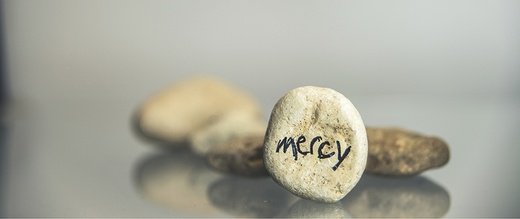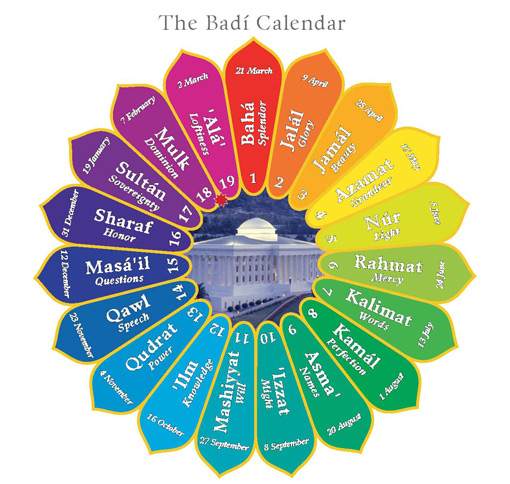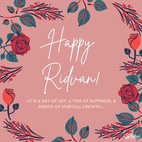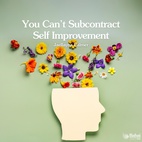The views expressed in our content reflect individual perspectives and do not represent the official views of the Baha'i Faith.
The Baha’i calendar has nineteen months, all named after attributes of God.
This gives us the opportunity, at least once a year (and preferably more often than that!), to deeply contemplate each of these spiritual attributes and human virtues and try to practice them in our lives.
As I write this we begin the sixth Baha’i month: Raḥmat, the Arabic word for mercy. So let’s make a few observations about this attribute of God, and explore how it can shed light on our practice of mercy.
It can be hazardous to start defining some virtues as ‘masculine’ and some as ‘feminine.’ Fundamentally, all moral virtues apply to all human beings. But in a recent Baha’i class we had a lively discussion about the balance of masculine and feminine attributes in the Baha’i concept of God. It turns out that in the original Arabic, the word ‘mercy’ does have a connection to the feminine that is not dependent on gender stereotypes. Just as, in English, related words can shed light on each other’s meaning, each Arabic word comes from an extended family of words that reinforce and illuminate each other.
The Arabic word for ‘mercy,’ raḥma, closely relates to the Arabic word for ‘womb,’ raḥim. This gives the word for ‘mercy’, and associated names of God, a definite motherly nuance. Raḥim, or ‘womb’ in turn has the added meaning of ‘connection’ and family relations, especially on the maternal side.
In ancient Arab culture and around the world today, family ties (including the greatly extended family of clan and tribe) generate some of the deepest loyalties. These loyalties can for a time even deflect great personal enmity—as the prophet Muhammad incurred through His preaching in Mecca. The relationship of ‘mercy’ to family ties gets new significance in light of the Baha’i message that humanity is itself one family, one reality. In the words of Abdu’l-Baha:
O people of the world! The dawn of the Sun of Reality is assuredly for the illumination of the world and for the manifestation of mercy. In the assemblage of the family of Adam results and fruits are praiseworthy…It is an absolute mercy and a complete bounty…nay, rather, mercifulness and oneness, the elimination of discord and the unity of whosoever are on the earth in the utmost of freedom and dignity…Thus the friends of God must manifest the mercy of the Compassionate Lord in the world of existence and must show forth the bounty of the visible and invisible King. They must purify their sight, and look upon mankind as the leaves, blossoms and fruits of the tree of creation, and must always be thinking of doing good to someone, of love, consideration, affection and assistance to somebody. They must see no enemy and count no one as an ill wisher. They must consider every one on the earth as a friend; regard the stranger as an intimate, and the alien as a companion. – Baha’i World Faith, p. 215.
Mercy combines at least two virtues: justice, and benevolence or care. For mercy to come into play, we must have some standard of justice–but also the willingness to sometimes look past it out of care for the person involved. As a virtue, mercy requires forgiveness, and a renewal of our mental attitude toward someone who has wronged us:
Shouldst Thou deal with us with Thy justice, we are all naught but sinners and deserving to be shut out from Thee, but shouldst Thou uphold mercy, every sinner would be made pure and every stranger a friend. – Baha’i Prayers, p. 47.
The connection between mercy, in the Arabic, to the idea of family relations becomes clear when we consider how often families must depend on this virtue. Everyone cannot insist on their own rights all the time. The mutual care and affection of a parent and child often outlasts the worst challenges to their relationship. And only a rare parent, mother or father, wants to see their child “prosecuted to the fullest extent of the law.”
The Baha’i teachings ask us to take this same attitude and, within the limits of good sense, extend it far beyond our immediate family. Of course, absolute mercy run wild would undermine justice. But in our pursuit of justice for ourselves we cannot lose sight of the interests of others. Not even righteous indignation should blind us from seeing the real human face of our perceived adversaries:
O God! Thou art kind to all, Thou hast provided for all, dost shelter all, conferrest life upon all. Thou hast endowed each and all with talents and faculties, and all are submerged in the Ocean of Thy Mercy. O Thou kind Lord! Unite all. Let the religions agree and make the nations one, so that they may see each other as one family and the whole earth as one home. May they all live together in perfect harmony. – Abdu’l-Baha, The Promulgation of Universal Peace, p. 100.


















Comments
Sign in or create an account
Continue with Facebookor